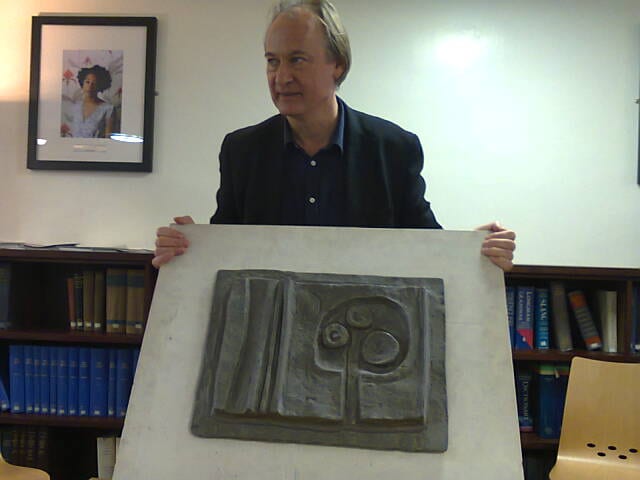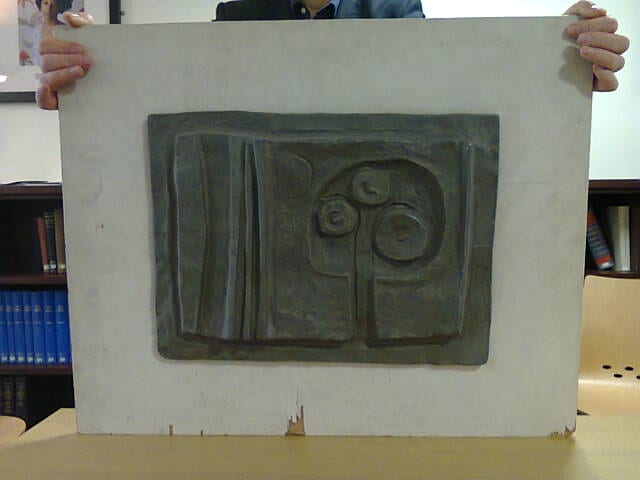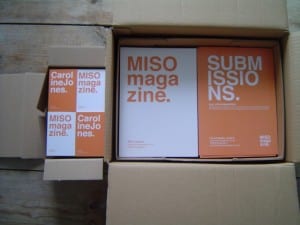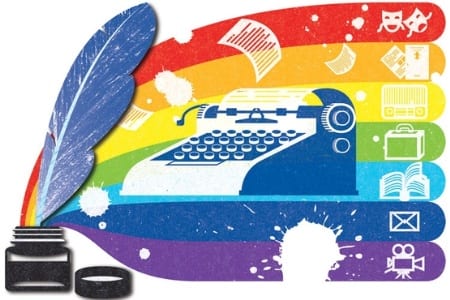
Prof John Whale with the sculpture bequeathed to the editors of P&A magazine in its early days.

Saturday, 19 October, 2013
Editors past and present, together with various poets, magazine editors and current students gathered at the School of English at Leeds University to celebrate 60 years of Poetry & Audience.
Poetry & Audience is one of the longest-running poetry magazines in the UK and owes its longevity as much to the frequently crisis-driven student-owned nature of its existence as to the commitment of the School of English. It also forms an integral part of the strong literary tradition of Leeds, which includes JRR Tolkien and poets such as Geoffrey Hill, James Kirkup, Tony Harrison, Ken Smith, Jeffrey Wainwright, Jon Glover, William Price (“Bill”) Turner, Paul Mills and many others.
The anniversary involved a roundtable discussion of poetry magazine publishing, readings by P&A poets and editors and individual accounts of the history of P&A (Michael Blackburn, Elaine Glover, John Goodby, Emma Must, Chris Nield, Antony Rowland, Jeffrey Wainwright).
The event was hosted by Prof John Whale, with sessions chaired by Fiona Becket, Hannah Copley and Emily Timms (who also arranged an exhibition of P&A materials). Many thanks to all of them and anyone who I’ve forgotten to mention.
Participants: Michel Blackburn, Carole Bromley, Elaine Glover, Evan Jones, Paul Maddern, Adam Piette, John Goodby, Jay Parker, Christie Oliver-Hobley, Sarah Webster, Amy Ramsey, Mick Gidley, Elaine Glover, Emma Must, Antony Rowland, Jeffrey Wainwright, Hannah Copley, Eleanor Ford, Daniel Boon.
Current and former students of Lincoln may want to submit work to P&A, of course.





